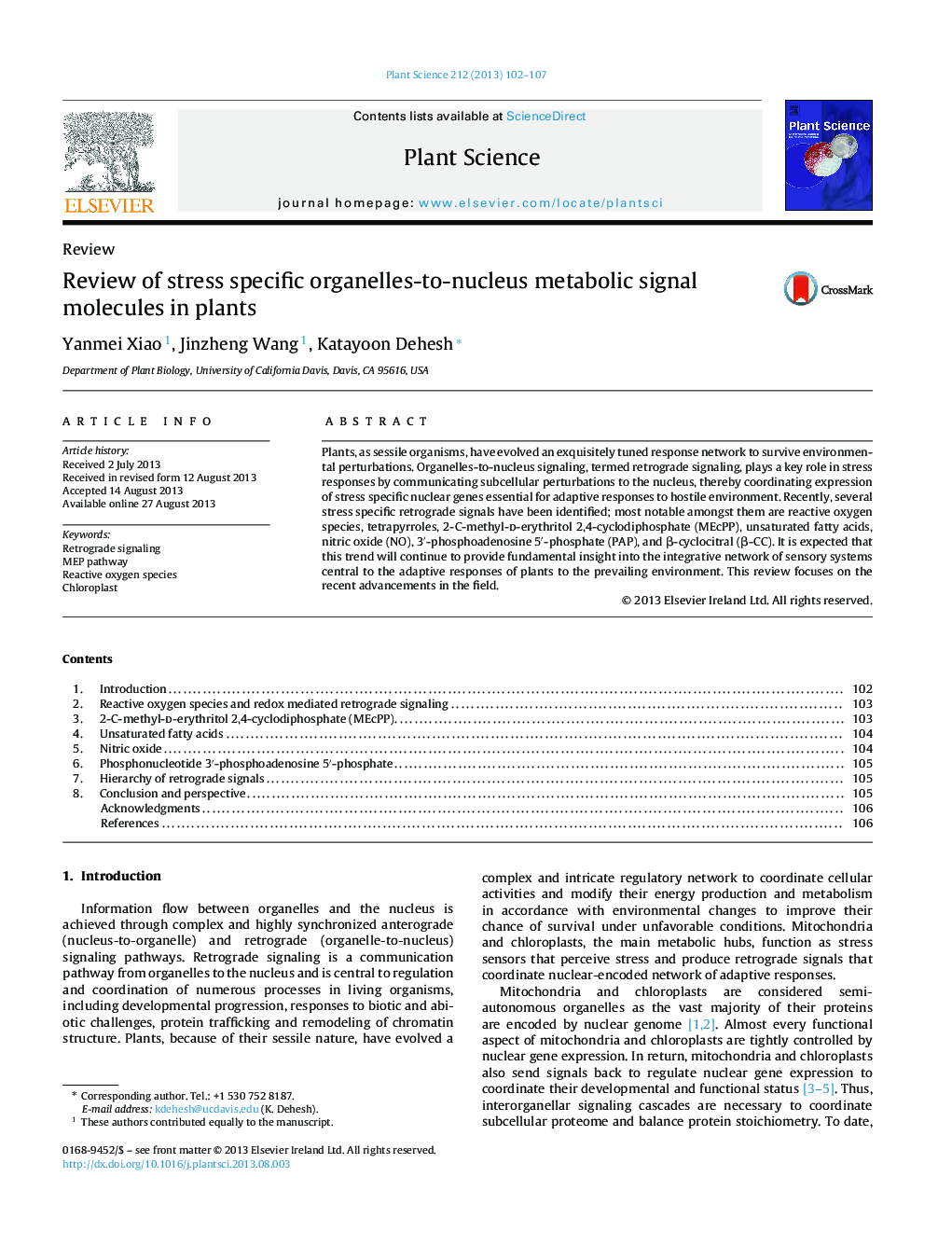| Article ID | Journal | Published Year | Pages | File Type |
|---|---|---|---|---|
| 8358538 | Plant Science | 2013 | 6 Pages |
Abstract
Plants, as sessile organisms, have evolved an exquisitely tuned response network to survive environmental perturbations. Organelles-to-nucleus signaling, termed retrograde signaling, plays a key role in stress responses by communicating subcellular perturbations to the nucleus, thereby coordinating expression of stress specific nuclear genes essential for adaptive responses to hostile environment. Recently, several stress specific retrograde signals have been identified; most notable amongst them are reactive oxygen species, tetrapyrroles, 2-C-methyl-d-erythritol 2,4-cyclodiphosphate (MEcPP), unsaturated fatty acids, nitric oxide (NO), 3â²-phosphoadenosine 5â²-phosphate (PAP), and β-cyclocitral (β-CC). It is expected that this trend will continue to provide fundamental insight into the integrative network of sensory systems central to the adaptive responses of plants to the prevailing environment. This review focuses on the recent advancements in the field.
Related Topics
Life Sciences
Agricultural and Biological Sciences
Plant Science
Authors
Yanmei Xiao, Jinzheng Wang, Katayoon Dehesh,
